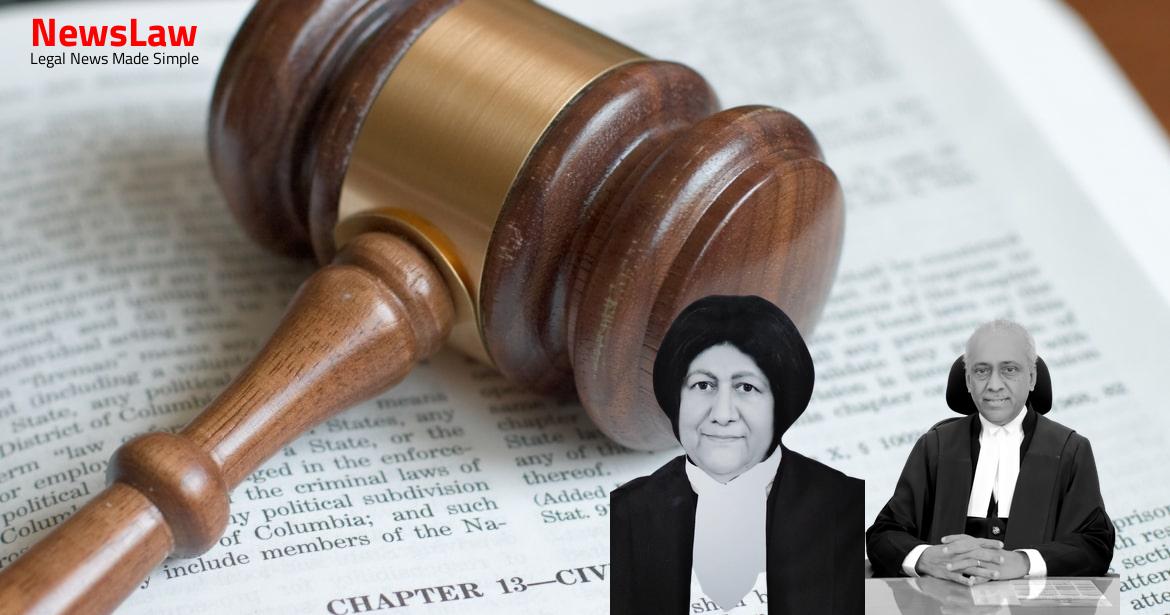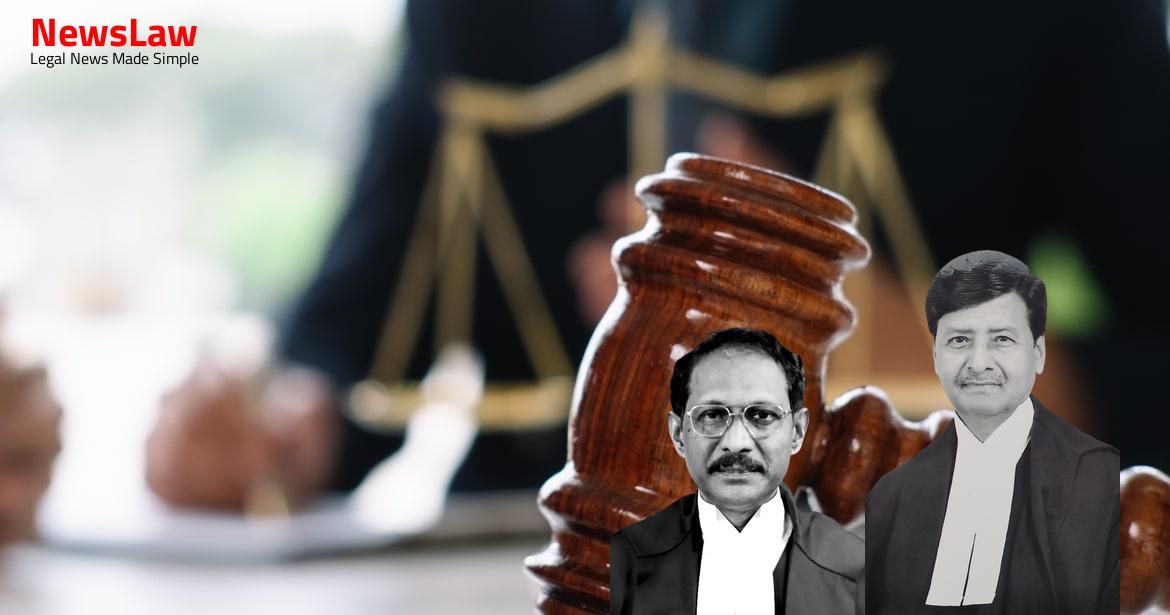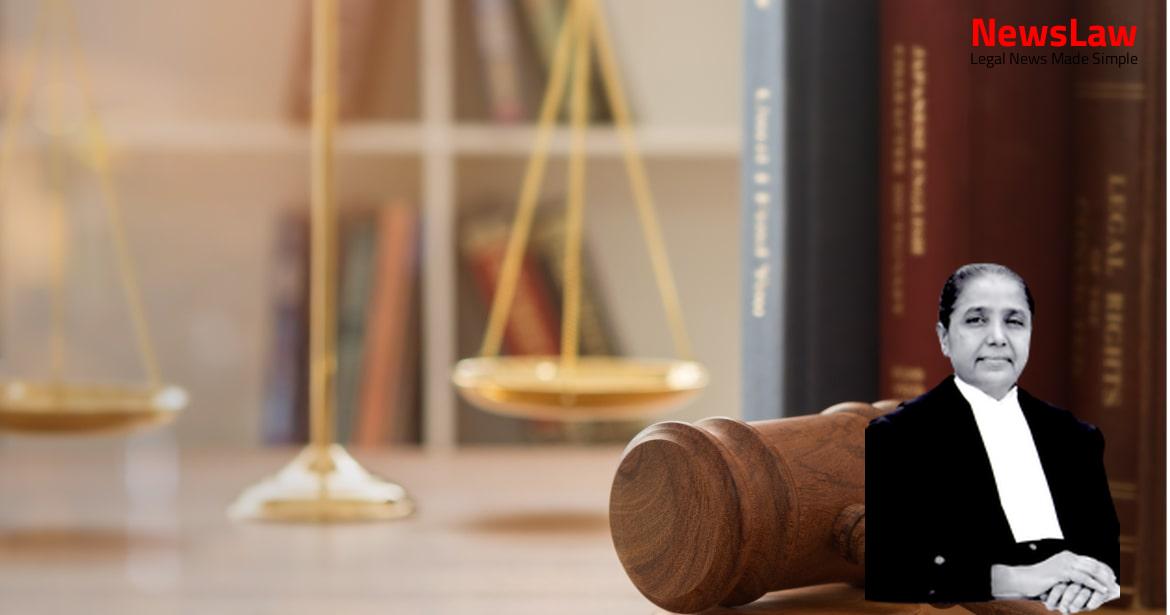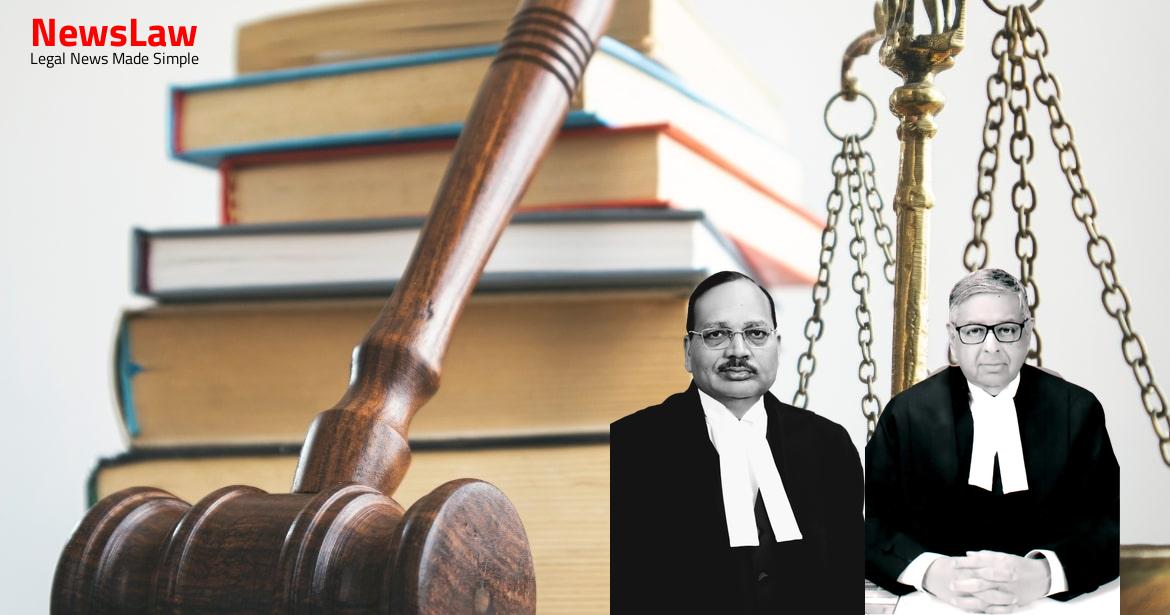In a recent legal case, a disability pension claim was rejected by the court, emphasizing the significance of legal analysis. The court’s ruling focused on the need for valid medical opinions and adherence to entitlement rules in determining eligibility for disability pension claims. Let’s delve into the intricacies of this case and understand the implications of the court’s decision.
Facts
- The Respondent filed a legal notice claiming disability pension after almost 20 years of his discharge from the Indian Army.
- The Respondent did not challenge his discharge as an undesirable soldier under Rule 13(3) III(v) of the Army Rules, 1954 for two decades.
- The Respondent’s claim for disability pension was rejected by the Chief CDA(P), Allahabad, citing existing rules.
- The Respondent’s case is different from others like Rajbir Singh or Dharamvir Singh, as he was not discharged on medical grounds.
- The Respondent served in the Army for nine years, seven months, and one day, excluding non-qualifying service days.
Also Read: Analysis of Financial Statements as Acknowledgment in Limitation Act Case
Analysis
- The Tribunal did not find any infirmity in the decision-making process of the Release Medical Board.
- There is no basis for constituting a Resurvey Medical Board two decades after discharge.
- Entitlement to disability pension cannot be determined based on a medical examination conducted 20 years after discharge.
- The Tribunal cannot overrule the expert opinion of a Medical Board regarding the soldier’s disability.
- The Tribunal’s finding that the soldier’s absence was due to his ailment is conjectural and lacks supporting evidence.
- The Review Medical Board only assessed the extent and duration of the disability, not the cause.
- The soldier’s discharge was based on administrative grounds and not on medical disability.
- The Tribunal overlooked the mandate of Rule 14(c) of the Entitlement Rules in its decision.
- The Resurvey Medical Board did not attribute the soldier’s disability to military service.
- The Tribunal erred in directing a Review Medical Board after such a long duration post-discharge.
- Medical opinion is crucial in establishing the cause and nature of a disability or ailment.
- Ailments may not be detectable during initial medical examinations.
- The Tribunal’s order for a medical review after such a prolonged period was deemed inaccurate.
- The opinion of the Release Medical Board should have been accepted by the Tribunal unless valid reasons were provided.
- Even if a disability arose during service, it may not be attributable to military conditions.
- The soldier’s discharge on administrative grounds after two decades cannot be challenged.
- The disability, if any, of the soldier was not deemed attributable to military service.
- Rule 14(b) of the Entitlement Rules does not apply in this case as the Respondent was not discharged due to a disease, ailment, or disability, but for administrative reasons.
- The Rule is only relevant when a disease leads to an individual’s discharge or death.
- The judgment in Rajbir Singh (supra) pertains to invalidation from service on medical grounds and is based on the provisions of the Entitlement Rules for Casualty Pensionary Awards, 1982.
- Rule 14 of the Entitlement Rules deals with diseases and their acceptance criteria based on military service conditions.
- The Tribunal relied on a previous judgment of this Court in Union of India v. Rajbir Singh, where disability pension was granted to ex-soldiers invalidated out of service due to medical disability.
- Discharge was on administrative grounds, not medical grounds, so no need for medical opinion on cause of ailment
- Appellants were not given the opportunity to prove ailment not caused or aggravated by military service
- Tribunal erred in assuming any undetected ailment at recruitment entitles soldier to disability pension without employer proving otherwise
Also Read: Interpretation of Corporate Guarantor under IBC
Decision
- The appeal has been allowed.
- There shall be no order as to costs.
- The impugned judgment and order have been set aside.
Also Read: Quashing of FIR and Charge-sheet: Legal Analysis
Case Title: UNION OF INDIA Vs. EX. SEP. R. MUNUSAMY (2022 INSC 731)
Case Number: C.A. No.-006536 / 2021



